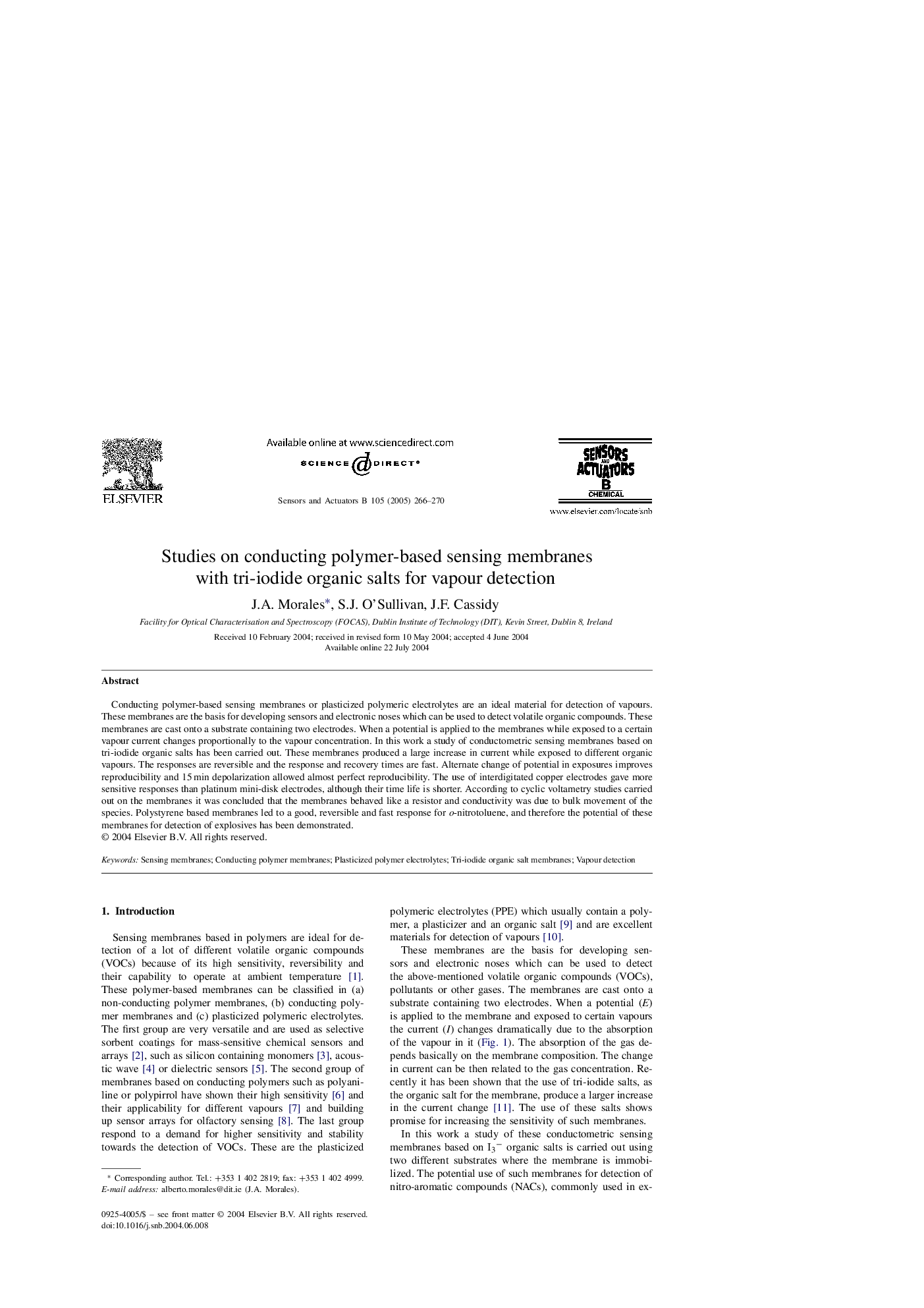| Article ID | Journal | Published Year | Pages | File Type |
|---|---|---|---|---|
| 10411044 | Sensors and Actuators B: Chemical | 2005 | 5 Pages |
Abstract
Conducting polymer-based sensing membranes or plasticized polymeric electrolytes are an ideal material for detection of vapours. These membranes are the basis for developing sensors and electronic noses which can be used to detect volatile organic compounds. These membranes are cast onto a substrate containing two electrodes. When a potential is applied to the membranes while exposed to a certain vapour current changes proportionally to the vapour concentration. In this work a study of conductometric sensing membranes based on tri-iodide organic salts has been carried out. These membranes produced a large increase in current while exposed to different organic vapours. The responses are reversible and the response and recovery times are fast. Alternate change of potential in exposures improves reproducibility and 15Â min depolarization allowed almost perfect reproducibility. The use of interdigitated copper electrodes gave more sensitive responses than platinum mini-disk electrodes, although their time life is shorter. According to cyclic voltametry studies carried out on the membranes it was concluded that the membranes behaved like a resistor and conductivity was due to bulk movement of the species. Polystyrene based membranes led to a good, reversible and fast response for o-nitrotoluene, and therefore the potential of these membranes for detection of explosives has been demonstrated.
Related Topics
Physical Sciences and Engineering
Chemistry
Analytical Chemistry
Authors
J.A. Morales, S.J. O'Sullivan, J.F. Cassidy,
